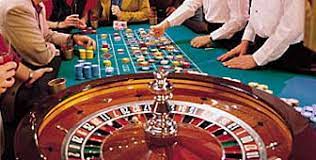Casinos have long been emblematic of both risk and reward, offering a unique blend of entertainment, luxury, and the tantalizing promise of instant wealth. From their humble beginnings in European gaming houses to the sprawling, neon-lit landscapes of Las Vegas and Macau, slot depo 5k have evolved into cultural and economic powerhouses. This article delves into the history, psychology, and modern-day impact of casinos, exploring why they continue to captivate millions worldwide.
The Origins of the Casino: A Brief History
The concept of the casino as we know it today can be traced back to 17th century Italy. The term “casino” itself originates from the Italian word “casa,” meaning house, and originally referred to small country villas or social clubs where gambling was among the activities offered. The first official gaming establishment, the Ridotto, opened in Venice in 1638, offering controlled gambling during the carnival season. This marked the beginning of regulated gaming environments designed for public entertainment.
As the idea spread across Europe, different countries adapted the casino concept to fit their own cultures. France introduced the concept of the “salons,” luxurious rooms where aristocrats could engage in gambling. By the 19th century, casinos had become popular across the continent, particularly in Monaco, which established its reputation as a premier gambling destination with the opening of the Monte Carlo Casino in 1863.
The Psychological Appeal of Gambling
The allure of casinos lies not just in the chance to win money, but in the complex psychology that underpins gambling. The thrill of uncertainty, the adrenaline rush of placing a bet, and the social environment all contribute to the casino’s appeal. Behavioral psychologists explain that gambling triggers the brain’s reward system, releasing dopamine, the neurotransmitter associated with pleasure and motivation. This release is particularly potent in the context of near misses or small wins, which encourage continued play by creating the illusion of imminent success.
Moreover, casinos are meticulously designed to keep players engaged. From the layout of gaming floors to the ambient lighting and soundscapes, every element is crafted to create an immersive experience. The absence of clocks and windows ensures that time feels irrelevant, allowing players to lose themselves in the game.
The Evolution of Casinos: From Brick-and-Mortar to Online Platforms
The traditional image of a casino—glittering lights, clinking coins, and the buzz of excitement—has undergone a significant transformation in recent decades. While physical casinos remain immensely popular, the advent of digital technology has revolutionized the industry, giving rise to online casinos.
Online casinos offer the convenience of gambling from the comfort of one’s home, with a vast array of games available at any time. These platforms use advanced algorithms and random number generators to replicate the experience of traditional gaming. Live dealer games, where players interact with a human dealer via video stream, have further blurred the lines between online and physical casinos.
The rise of mobile gaming has also played a critical role in expanding the reach of casinos. With smartphone penetration at an all-time high, many online casinos have developed apps that allow users to play on the go, making gambling more accessible than ever before.
The Economic Impact of Casinos
Casinos are more than just entertainment hubs; they are significant economic drivers. In many regions, they generate substantial revenue through gaming taxes, which fund public services and infrastructure projects. For example, the casino industry in Macau contributes over half of the region’s GDP, making it a critical component of the local economy.
In the United States, cities like Las Vegas and Atlantic City have become synonymous with gambling, attracting millions of tourists each year. These visitors spend money not only on gaming but also on hotels, restaurants, shows, and other attractions, creating a robust tourism ecosystem.
However, the economic benefits of casinos come with caveats. Critics argue that casinos can contribute to social issues such as gambling addiction, which can have devastating personal and financial consequences. There is also concern that casinos may disproportionately impact lower-income communities, where individuals are more vulnerable to the allure of quick money.
The Future of Casinos: Innovation and Regulation
As technology continues to evolve, so too will the casino industry. Virtual reality (VR) and augmented reality (AR) are poised to revolutionize the way we gamble, offering immersive experiences that could make online casinos even more compelling. Imagine stepping into a virtual casino, complete with interactive slot machines, blackjack tables, and even virtual fellow gamblers, all from the comfort of your living room.
Regulation will play a crucial role in shaping the future of casinos. As online gambling becomes more prevalent, governments worldwide are grappling with how to regulate this rapidly growing industry. Ensuring fair play, preventing underage gambling, and addressing problem gambling are key concerns that will require innovative solutions and robust oversight.
Conclusion
Casinos, whether physical or digital, occupy a unique place in our culture and economy. They are spaces where fortunes can change in an instant, where the line between reality and illusion blurs, and where the thrill of the game captivates millions. As we look to the future, the casino industry will undoubtedly continue to innovate, offering new experiences and challenges that will keep gamblers coming back for more. However, balancing the economic benefits with the need for responsible gaming will be essential in ensuring that casinos remain a source of entertainment and not a cause of harm.

